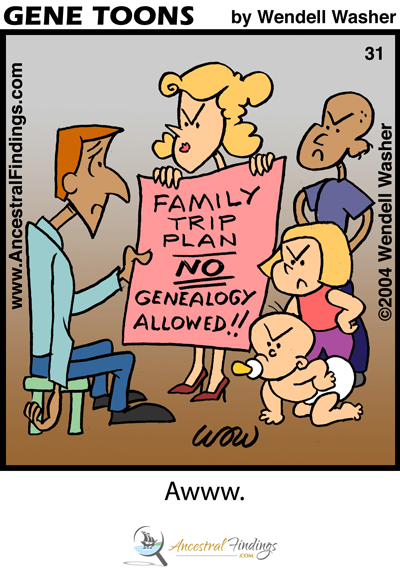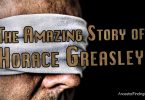If you want to truly understand who your ancestors were as people, you have to do a little bit more than the regular types of genealogical research. You have to become a historian of the times and places in which they lived. Even if you are not reading about your ancestors specifically, you can find out so much about who they were by reading about the history that surrounded them. Brushing up on the details of what life was like in general in the time and place they lived, what historical events might have affected them, what the customs and social etiquette were at the time, who else lived in town and what they were doing, and more can all give you an excellent idea of what your ancestors went through, and how those things likely shaped them as people.
It is also an excellent way to get to know those elusive ancestors better. The ones who lived in counties with burned courthouses (so, no records to research), or with missing records, can be delicately and gradually excavated from the dust of time to be revealed in all their very real, glorious personhood by reading about the history that surrounded them and the things they had to have lived through by virtue of being where they were, when they were.
A good example of how reading helps you understand your ancestors as people better is Reconstruction. This is a unique period in the Southern United States just after the Civil War, when Northern soldiers were stationed there for several years to make sure the South complied with the new anti-slavery and equality amendments to the Constitution. It was a difficult time for many Southerners, when their states were occupied by soldiers from other states at the same time they were trying to rebuild their communities after the war.
If you don't know much about your ancestors who lived in the South during this time, because of lack of records and/or personal commentary in diaries, letters, or newspaper articles, then reading about Reconstruction in their particular state (and their city or town, if you can find information on it) will tell you so much about what your ancestors likely went through during this time. You can get an excellent idea of what their lives were probably like during Reconstruction, and it will allow you to get to know them more intimately as the real people they were.
Another excellent example is colonial histories. Unlike other areas of the country, the New England area has quite a few wonderfully detailed histories of individual towns during the Colonial period. Even small towns often have their own well-researched history written on them. Again, if there are a lack of personal details or records on a colonial New England ancestor, just find the appropriate town history that discusses the time period in which they lived. Because colonial New England was much the same for everyone due to Puritan church laws governing most areas of everyday life, you will gain a better, deeper understanding of your colonial ancestors, their thoughts, feelings, opinions, and actions during this time.
Genealogy and history go hand in hand. If you want a truly three dimensional picture of your ancestors, you need to be reading about the general history of the times and places in which they lived. Even if you have records and/or personal accounts from them, it is unlikely enough has been left behind that covers every aspect of their lives or personalities. People are shaped by the times and places in which they live. Reading about their history in a general way can make your ancestors come alive and jump off the family tree chart for you in a way very few other things can. And, isn't it the goal of every genealogist to know their ancestors as people, and not just as names and dates on a family tree? Reading history helps you know them in the most intimate way possible.
Maybe they lived through a war. Maybe the war came to their community, with a battle (or more) being fought there. Maybe they were affected by a trade embargo because of that war. How did they cope with it? What workarounds did they use?
Maybe there was a famine or crop failure during their lives in their community? How does history say the community was affected? What did people do for food? Did they stay and find alternatives, or did they move to more fertile lands?
What church was dominant in your ancestor's community when they were living there? What were the beliefs of this church? If it was the main one (or only one) in town, it is highly likely your ancestor belonged to it. The beliefs of that church would have affected your ancestor's own beliefs, which, in turn, would have influenced everything they did, from courting to daily household management to raising their children. You can get a good idea of your ancestor's beliefs, practices, and opinions based on the church they belonged to.
What were the social norms and expectations of the time and place? These affected your ancestor, too, as they would have been expected to conform to them. These things are especially handy at getting to know female ancestors better, as most of these “societal expectations” applied to them. With so many female ancestors disappearing into their husbands in the records of history, and never being recorded as individuals again, knowing about what their community would have expected of them in social interactions and etiquette is a wonderful way to know who they really were as real life people.
When doing genealogy, you can't help but read some history. However, going out of your way to find books on the history of your ancestor's community at the time they lived there will only enhance your family tree and your understanding of your ancestor as a person. That is genealogical gold worth digging up on every branch of your tree. It's an investment in time you'll be glad you made.




